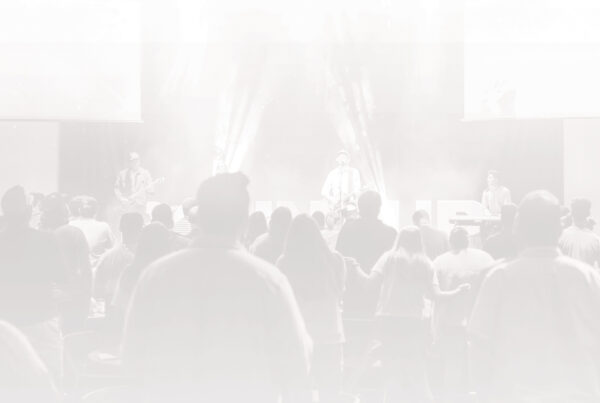In college, I remember being the only Black female college leader in my local church’s college ministry for several semesters. Though it was a season that God used through equipping, community, and discipleship, there were definitely difficulties and nuances that I, at the time, wasn’t prepared to navigate. In the years since, God has made way for me to speak into how diversity is sought after and spoken about in numerous church and parachurch contexts.
This isn’t something that, I think, can be done perfectly. But it is something that can (and should) be fought for faithfully. When we attempt to make our churches and ministries look more like heaven in this area, God is glorified. Here are a few things that I wish my college staff/leaders/pastors would have considered in terms of diversity and leadership. Disclaimer: This is written from the perspective of someone who was in a predominantly white church.
-
Most students of color walk into your church’s doors with a strong pressure to assimilate to majority culture, whether they ever say it or not.
I remember the first time I went to the church that I attended in my college years. I felt immediately welcomed. I had friends to sit with, clear paths to being plugged in, and free coffee. What college student doesn’t want that (especially the last thing)? But I also exhibited a large, looming pressure to assimilate into the predominant culture I was surrounded by. Being a young, single black woman within the church at that time had caused me to feel pretty…other. I felt like so much of myself was visible because of how few Black students were in the college ministry at that time. I think there was a huge part of me that wanted to blend in in every way I could (through language changes, clothing choice, and personality traits) because of the one way I couldn’t (my skin color). I don’t know for sure, but I bet lots of minority culture students felt this way. Many still do. This was no one’s fault, and maybe it can’t be fixed. But I think it breeds a lot of context around the question, “Why don’t more Black students come to our events/services/etc.?”
There are many black students that try to fight the pressure to assimilate, and it’s exhausting. Sometimes, a staffer at the church would come up to me or meet with me and encourage me for being myself in our church. They acknowledged the elephant in the room (race) and named explicitly what I had been feeling internally. It didn’t happen super often, but when it did I felt so seen. I felt as though I mattered, what I went through mattered. That staff member couldn’t empathize with my experience (they were white), but their heart for Jesus led them to sympathize with me.
I know this probably wasn’t easy or comfortable to do. That person had no idea how I would receive what she was saying, or how I would respond. But her bravery built a bridge between us that day. It made the church a place I felt safer, more comfortable, and more known.
-
When things of a racial connotation happen in our country, it’s likely we wish you spoke up first about it (and followed up with us on how we’re doing).
There were several shootings that happened while I was in college, some of which struck a personal chord with me. The 2019 police shooting of Atatiana Jefferson was a huge example. That event, that life being cut short, affected me in a way that still lingers today. It was news everywhere (it felt), across the US. But it felt pretty silent in the world of the college ministry I was involved in. The only times it was brought up, I was the one to chime in first. After a while, I felt like I was the only one who cared.
When things happen to Black and Brown people in our country, we often feel it personally, grieve it deeply, and, unfortunately, end up coping with it privately. I challenge my fellow brothers and sisters in Christ with Paul’s words to the church in Rome, “Rejoice with those who rejoice, weep with those who weep.” (Romans 12:15) Dealing with racial trauma is a deeply weighty and difficult ordeal. It’s all the more difficult to do so alone. It may be awkward, uncomfortable, and may even be unsuccessful, but reaching out and speaking up on things pertaining to race sets the pace for the students of your ministry in ways that make much of Jesus.
-
We realize that you won’t do this perfectly, but to see you try is deeply encouraging.
The perfect church doesn’t exist. The perfect small group, worship set, equipping class all fall short of the glorious God they point people toward. But the transformation to people’s hearts isn’t found in perfect performances. It’s not found in us at all. God does more through our prayerful faithful service than we could ever do apart from Him. This is no different with diversity in college ministry. You will fail in this. You will fall short. But in the instances where this happens, ask for forgiveness, and keep pushing. Discipling/equipping leaders from diverse backgrounds is more of a journey to grow through than a battle to be won. It is only out of a heart of humility and love (for God and for God’s children) that you can be strengthened to continue, rather than burn out. In addition to this, the students of color that God has entrusted to you (whether for a semester or 10 semesters) are profusely encouraged to see you fight for them this way. It deepens their trust in you and buy-in of the ministry. When I saw this in my time in college, it made me feel like all of me is welcomed here. I don’t bring only a Black face, but a Black voice as well. It helped me see that my burdens and my hurts were welcomed for healing there. Through being heard and valued for my ethnicity and all that comes with it, the gospel made its way to my heart. This was slow, awkward, and difficult work. But it’s so, so worth it.





